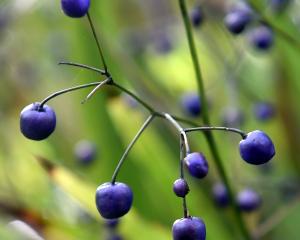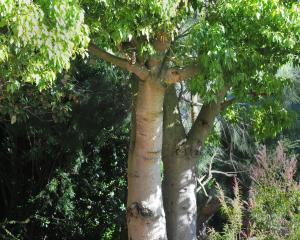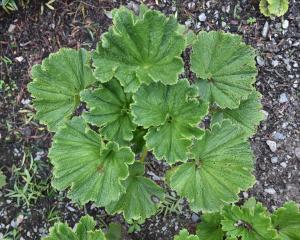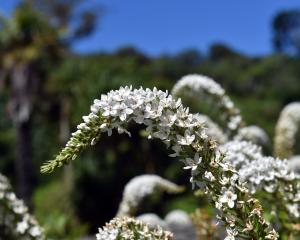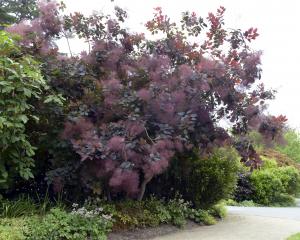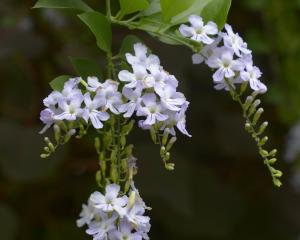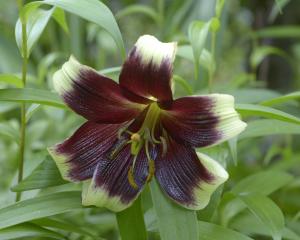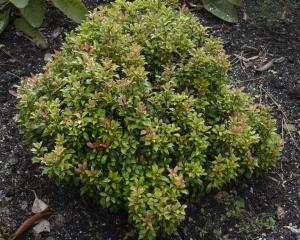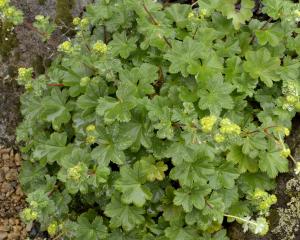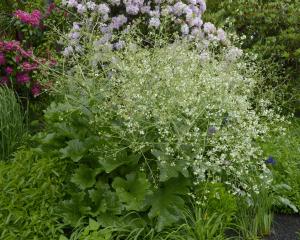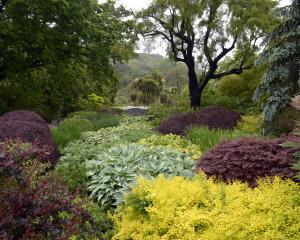Coprosma is an understated genus of woody plants found throughout New Zealand and well represented in Dunedin Botanic Garden.
There are 60 or so native species of Coprosma.
They grow in a wide range of habitats, from sand dunes to mountains.
The variety of forms in the genus reflects the diverse landscapes of Aotearoa.
There are ground-hugging mats, low sprawlers, compact or billowing shrubs, and upright small trees.
Leaves have smooth margins and are arranged in opposite pairs.
They are usually quite tiny, but in a few of the forest species they are much larger.
All Coprosma species have wind-pollinated flowers.
The flowers are not eye-catching, but are followed by berry-like fruits, called drupes, that glisten from the branches like jewels.
In a good fruiting year the plants can be absolutely laden.
Though never ostentatious, these adornments come in a variety of colours: ruby red, translucent pink, milky white, or a bright, gem-like blue.
It is the females that wear all the jewellery.
Male and female flowers occur on different plants, so for fruit to develop there must be both male and female specimens growing together.
Spot a variety of Coprosma species growing throughout Dunedin Botanic Garden's New Zealand native plant collection, providing texture to the other plantings and food for birds and lizards.
Look out for the glassy drupes, often suspended within a tangle of wiry, interlacing branches.
• Kate Caldwell is curator of the New Zealand Native Plant Collection at Dunedin Botanic Garden.

